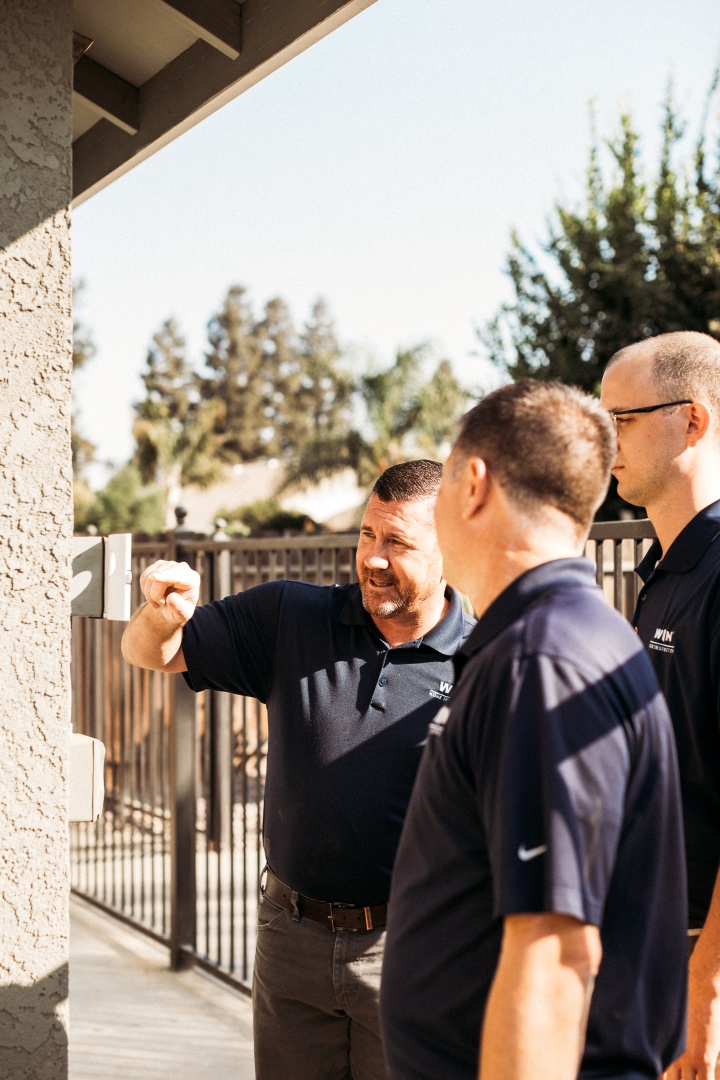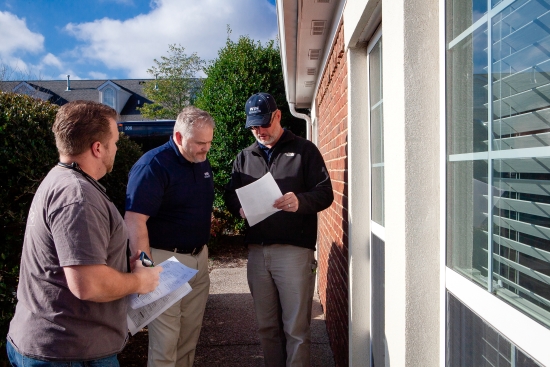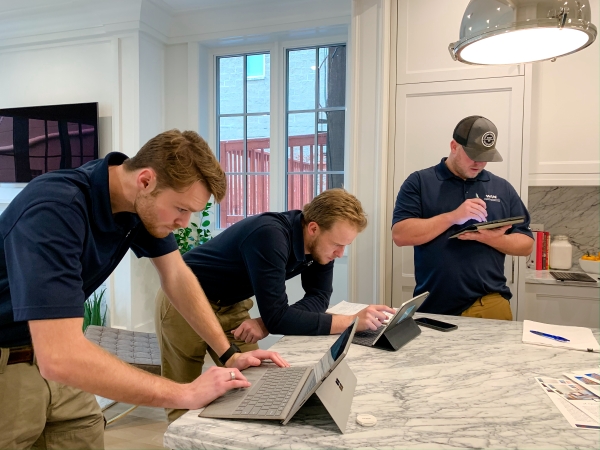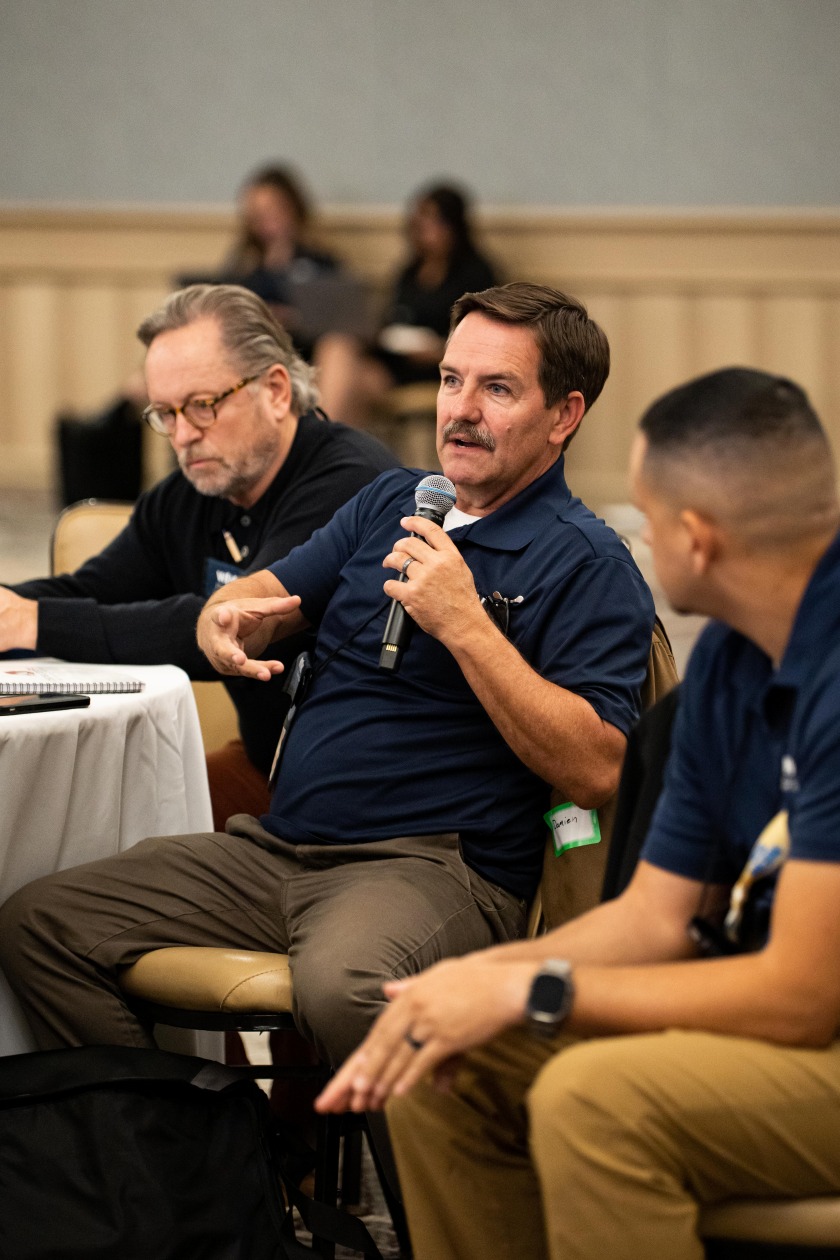Ready to Embark on an Exciting Journey with WIN?
Take the first step toward personal and financial freedom by filling out the interest form. One of our franchise advocates will be in touch with you soon!
Ready to become a home inspector in Texas? Follow these key steps to fully understand Texas’s licensing requirements and training to successfully launch your career as a home inspector.

Home Inspector Licensing Requirements in Texas
Start here to ensure you’re fully compliant and ready to succeed by understanding the licensing requirements for home inspectors in Texas.
Home inspector training must be approved by the Texas Real Estate Commission (TREC). To obtain the Real Estate Inspector license, 154 hours of education (including 40 hours of practicum) are required, and to obtain the Professional Real Estate Inspector license, 194 hours of education are required (including 40 hours of practicum).
In Texas, home inspectors must pass the National Home Inspector Exam (NHIE) and the state-specific exam. These exams can be taken throughout the year and proof of passing is required to apply for the home inspector license. These exams must be proctored.
To apply for a license, submit your application and all required documentation (including exam scores, proof of financial responsibility, and proof of completed education) to TREC. The application fee is $100 for the Real Estate Inspector license and $120 for the Professional Real Estate Inspector license. An additional $10 fee is applied after passing the exam.
Provide proof of Liability Insurance with a minimum of $100,000 per occurrence and an aggregate annual total of a minimum of $100,000 using the TREC Certificate of Insurance form or provide proof of a Surety Bond using the TREC Proof of Financial Responsibility Form.
Texas has specific continuing education (CE) requirements that all licensed home inspectors must complete on an annual and biannual basis. See below for the continuing education requirements.
32 hours total, 16 hours per year
Every 2 Years
Additional Requirements: Inspectors are limited to a maximum of 16 hours of Continuing Education (CE) credit in a single topic per renewal period. They are required to complete an 8-hour course on Inspector Legal & Ethics and Standards of Practice (SOP) Review; Final exams for both qualifying and non-elective continuing education must be proctored.
WIN Home Inspection’s training program is approved by the Texas Real Estate Commission (TREC) for those looking to obtain an Apprentice Inspector License, Real Estate Inspector License, or Professional Real Estate Inspector License. WIN is the only home inspection franchise to offer TREC-approved training in-house, helping franchise owners streamline their education and avoid additional fees while on their path to becoming a home inspector in Texas. We are specially trained and knowledgeable about the road to becoming a home inspector in Texas and help guide our franchise owners every step of the way.




Home inspectors in Texas can expect to make an average of $43,000 per year, up to $103,000 and at least $18,000 when you’re just starting out.
To obtain a Professional Real Estate Inspector license in Texas, it requires 194 hours of education. For many aspiring home inspectors, it takes 8-10 weeks to complete the required training, depending on how many hours a day and how many days of the week are devoted to training.
Currently, home inspectors are in demand in Texas given the increase in home sales in recent years.
The cost of home inspector insurance in Texas varies depending on the coverage and insurance provider; however, home inspectors in Texas are required to have a minimum of $100,00 in Errors and Omissions (E&O) insurance.
All home inspectors in Texas are required to obtain a minimum of $100,000 in Errors and Omissions (E&O) insurance to get or renew a license with TREC. Errors and Omissions insurance is a professional liability insurance that protects you, your company, and your employees against claims of negligence and inadequate work. This insurance is essential as a home inspector and can easily be obtained through an insurance provider. In addition to E&O insurance, you’ll also need Liability Insurance with a minimum of $100,000 per occurrence and an aggregate annual total of a minimum of $100,000. This can also be obtained through an insurance provider.
Preparing for the home inspector exam in Texas requires hard work and diligence. First, it’s important to understand the exam structure as well as the types of questions asked, and the topics covered. Additionally, you should study regularly to keep the information fresh and build on your knowledge. Using study guides, a tutor, or an online prep course can help you study more efficiently. Finally, take practice exams to familiarize yourself with the exam itself and get comfortable with the materials.
The difficulty of the Texas home inspector exam really depends on how much you prepare for it. You need at least a 70% on the National Home Inspector Exam (NHIE) to pass. We recommend enrolling in an exam prep course if you feel you need an extra boost!
Take the first step toward personal and financial freedom by filling out the interest form. One of our franchise advocates will be in touch with you soon!